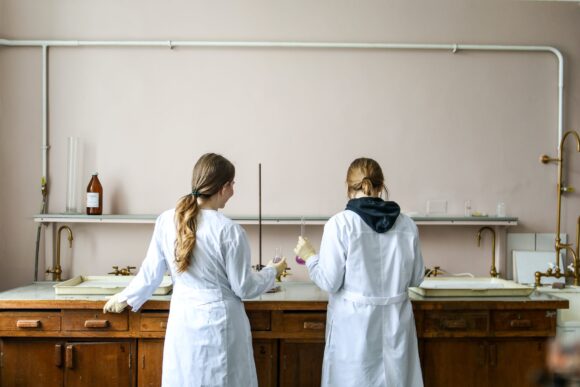A hypothesis tested: homeschooling brings real gains
A friend asked me recently about homeschooling in those areas in which I don’t have noteworthy expertise — like chemistry, which my younger daughter has been taking this year, or pre-calculus, which she will start next year.
It’s a good question. The answer is that in the homeschooling model, the teacher is not the primary source of knowledge. Instead, the learning materials are. Those who write the chemistry texts and curriculum know the subject well, as they do in producing materials for public school classrooms. The difference is that while for the public school student the teacher is a more deeply informed administrator of the course content, there is no such intermediary for the homeschooled student — unless the subject under discussion is one in which the parent is trained.

Is this a loss?
It would be pure hubris to say it’s never a loss. My father was a biology teacher in high school, and it would be offensively dismissive to suggest that his B.S. in biology and M.A. in education and 36 years of experience in the classroom made no difference. Certainly there are aspects of my experience as a public school student that are lost to my daughters.
But there is also a gain for them. Why? Somehow, they must find a way to master the material even without an expert face-to-face teacher at hand. They must take ownership of their learning, grappling with the textbooks and labs and worksheets and exercises themselves. My role as the teacher is to:
- choose good materials (This is part of the challenge every year; here’s a previous post on choosing materials. There are plenty of others in the education and educational philosophy categories.)
- organize a plan for implementing them in ways that require sufficient time and practice
- hold students accountable by discussing their assignments regularly, going over answers and helping to pinpoint areas of confusion
- administer and assess tests of their mastery
So far, this method has worked, first, in helping both daughters acquire mastery. My younger daughter has participated in a science co-op this year, meeting once weekly to perform chemistry labs and have access to a teacher knowledgeable in chemistry. This has worked out well to supplement our work at home, and the social experience has been positive as well.
My older daughter, however, was not interested in participating in a co-op when she did chemistry (though I insisted on this for physics, and it worked out well). I agreed to forego the co-op so long as she could be successful without it, and she was. I remember well the sight of her at the kitchen counter, wearing protective glasses and taking notes as she observed some mixture heating over a Bunsen burner. I remember going over answers to the weekly assignments, and when she occasionally got one wrong, my only recourse was to read the answer again — more slowly, step by step. She virtually always found her own mistake. If this system had stopped working, we would have had to discontinue homeschooling or find extra help.
The amazing, inspiring thing is, this has worked not just in acquiring knowledge, but in developing a scholarly character. If the students rise to the challenge and take on the responsibility of learning directly from the materials at hand, they can come away with proficiency even in subjects to which their parents do not contribute special expertise. They come away with something else, too: a sense of confidence in what they can do, an ability to work with a variety of educational materials to acquire knowledge, and a level of responsibility and ownership for their own learning that will stand them in good stead for any endeavor they undertake after high school.





2 Comments
Ruth
Wow. What a great post. Thanks for describing how it works. It’s impressive and inspiring! I think what I like best about it is the way it requires you to know your own child and to figure out what works for that child.
Janet
Thank you, Ruth! I’ve always admired you as a teacher, so this means a lot.
Homeschooling is definitely an adventure — more than I realized at the beginning.